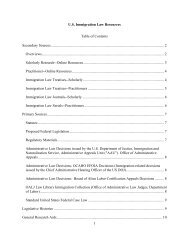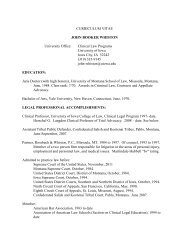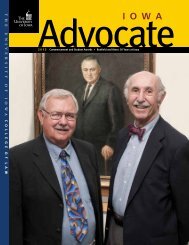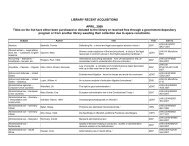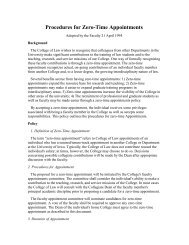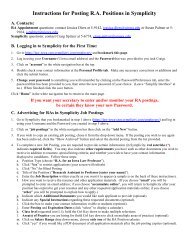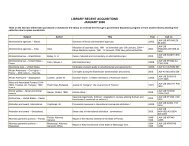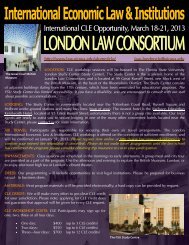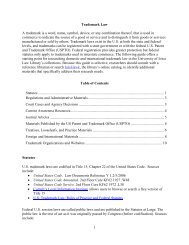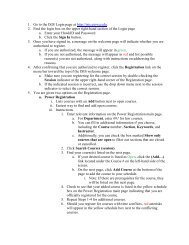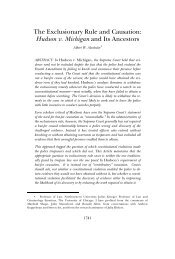Free Writing Steve Thel*
Free Writing Steve Thel*
Free Writing Steve Thel*
- No tags were found...
You also want an ePaper? Increase the reach of your titles
YUMPU automatically turns print PDFs into web optimized ePapers that Google loves.
Thel Final9/18/2008 1:11 PM2008] <strong>Free</strong> <strong>Writing</strong> 959send statutory prospectuses anyway. For most of the history of the Securities Act,statutory prospectuses were elaborate printed documents prepared and distributed atsubstantial expense. A free-talking regime would have required issuers and underwritersto send those expensive documents blindly to prospective investors without knowingwhether they were at all interested in buying the subject security. The substantial wastedexpense of widespread distribution of unsolicited statutory prospectuses would haveundercut, and probably destroyed, the incentive effect of allowing free talking. It istelling that when the SEC used its regulatory authority to require offering participants todisseminate statutory prospectuses widely, it never required brokers and dealers todistribute statutory prospectuses to all offerees, let alone before contacting them byphone. 84In contrast, excepting free writing from section 12(a)(2) created a particularlyefficient incentive mechanism that imposes few costs on either sellers or buyers. Theexception has great value for those who distribute section 10(a) prospectuses, and withoutit the right to distribute free writing would not serve as much of an incentive, inasmuch astheir distribution of free writing would expose them to harsh liability if it turned out toinclude false statements. Evidence that this risk would be chilling can be found incontemporary hesitance to use free writing prospectuses, which are subject to section12(a)(2) liability. 85 The risk of liability was even higher when the Securities Act wasadopted, since the statute did not allow defendants to escape liability by showing that anydecline in market value was unrelated to the misrepresentations in the communication atissue. 86 Moreover, free writing is not likely to take the form of widely distributed,standardized material that can be efficiently reviewed to assure that it is free ofinadvertent error. The value of free writing from the distributor‟s perspective is that it canbe personalized and used in many different forms. The same characteristics would makethe possibility of section 12(a)(2) liability particularly chilling, as it is difficult to justifythe expense of extensive due diligence with respect to casual and one-offcommunications. The Supreme Court got little right in Gustafson, but surely there issome merit to the argument that[i]t is understandable that Congress would provide buyers with a right torescind, without proof of fraud or reliance, as to misstatements contained in adocument prepared with care, following well-established procedures relating toinvestigations with due diligence . . . . It is not plausible to infer that Congresscreated this extensive liability for every casual communication between buyerand seller . . . . 87While the right to use free writing is valuable, the cost that the statute imposes onthose availing themselves of the right is quite low. The seller can talk to his prospects togauge their interest before sending a statutory prospectus, so the cost of printing andpostage is easier to justify. The other cost—the risk of liability under section 12(a)(2) for84. See supra note 77 (detailing a shift in SEC policy from delivery to availability of statutoryprospectuses).85. See infra text accompanying notes 182-184.86. See supra text accompanying note 51 (explaining that the lack of loss causation affirmative defensewas added to section 12 in 1995).87. Gustafson v. Alloyd Co., Inc., 513 U.S. 561, 578 (1995) (emphasis added).



